Are you looking to streamline your hospitality management agreements? Crafting a clear and comprehensive letter template can make all the difference in ensuring mutual understanding between parties. This simple yet effective document not only outlines the key terms and conditions but also establishes a professional relationship built on transparency. Dive in to discover how to create an impactful hospitality management agreement that meets your needs!

Parties Involved
The hospitality management agreement establishes a professional relationship between the Owner and the Manager concerning the operation and management of the property. The Owner, identified as [Owner's Full Name or Entity], holds ownership rights of [Property Name], situated in [Location, including City and State] with [specific features or capacity, such as number of rooms or amenities]. The Manager, identified as [Manager's Full Name or Entity], specializes in hospitality management services, with a proven track record in successfully running similar establishments. This agreement delineates the roles, responsibilities, and expectations of both parties, ensuring a clear understanding of operational objectives and financial goals for the property. The commitment of both parties aims to enhance guest experiences, optimize profitability, and maintain industry standards within the competitive hospitality landscape.
Scope of Services
A comprehensive hospitality management agreement outlines the scope of services provided by management companies to ensure optimal operations of establishments like hotels or restaurants. Essential services often include operational oversight (daily management tasks to maximize efficiency and guest satisfaction), marketing strategies (targeted promotional campaigns to boost occupancy rates), financial management (budget preparation, cost control, and financial reporting), staff training (enhancing employee skills for improved guest interactions), and maintenance services (regular upkeep of facilities to meet safety standards). Environmental considerations, such as sustainability practices, also play a crucial role in modern agreements, reflecting industry trends towards eco-friendliness. Every aspect of the scope aims to foster a profitable and enjoyable experience for guests at the property.
Compensation and Payment Terms
The hospitality management agreement outlines specific compensation and payment terms that govern the financial relationship between the hotel owner and the management company. The compensation structure typically includes a base management fee, which is a percentage of the hotel's gross revenue, often ranging from 3% to 5%. Additional incentives can be outlined in the agreement, known as performance-based fees, calculated based on hotel profitability and key performance indicators (KPIs). Payment terms cover the frequency of payments, commonly monthly, and stipulate the timeline for remittance, usually within 15 days after the end of each month. Provisions for reimbursement of pre-approved operating expenses incurred by the management company during hotel operations may also be detailed. The agreement will also specify permissible deductions and the process for dispute resolution regarding financial discrepancies.
Term and Termination
The hospitality management agreement typically specifies the duration of the contract, noting the start and end dates, which often lasts for a predetermined period like five years. Termination clauses detail circumstances that allow either party to exit the agreement prematurely, often including scenarios such as breach of contract, failure to meet performance standards, or external factors like natural disasters impacting operations. It is crucial to outline the required notice period, typically ranging from 30 to 90 days, to provide both parties ample time to transition. Confidentiality obligations and settlement of outstanding financial matters also play a vital role in the termination process, ensuring a smooth disengagement without adverse effects on either party's reputation.
Dispute Resolution Mechanisms
In hospitality management agreements, dispute resolution mechanisms play a crucial role in ensuring efficient handling of conflicts between parties, such as hotel owners and management companies. Mediation, often the first step, provides a neutral platform where both parties can present their concerns, often at a mediation center like the American Arbitration Association (AAA), aiming for a mutually agreeable solution outside of court. If mediation fails, arbitration serves as a binding resolution process, where an arbitrator reviews evidence and makes a final decision, typically adhering to the rules set by organizations like the International Chamber of Commerce (ICC). This structured approach, utilized in various hospitality contexts including contract disputes in luxury resorts or service disagreements in boutique hotels, helps maintain business relationships while addressing grievances effectively.

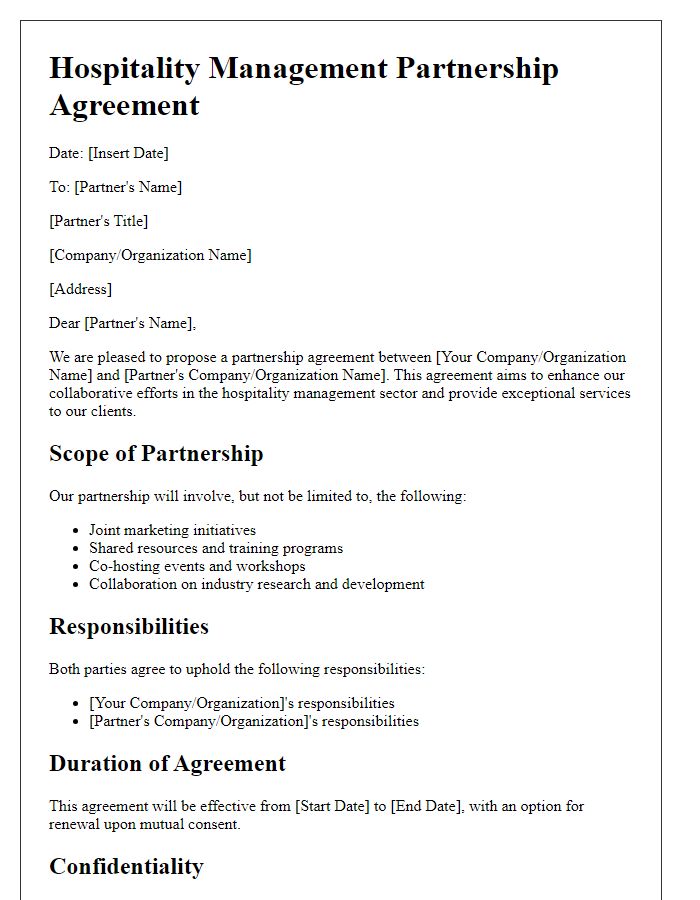
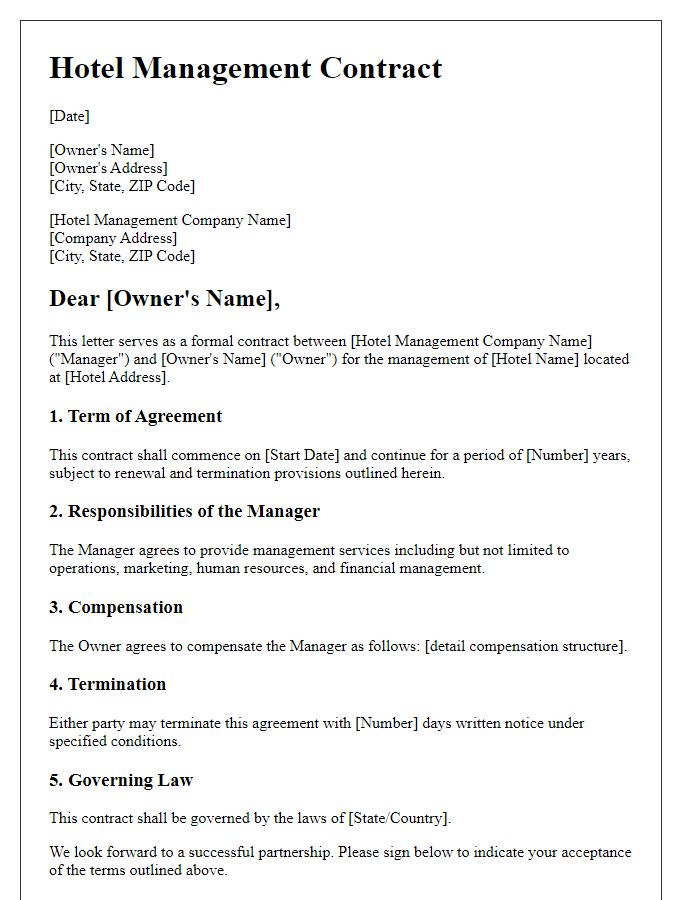
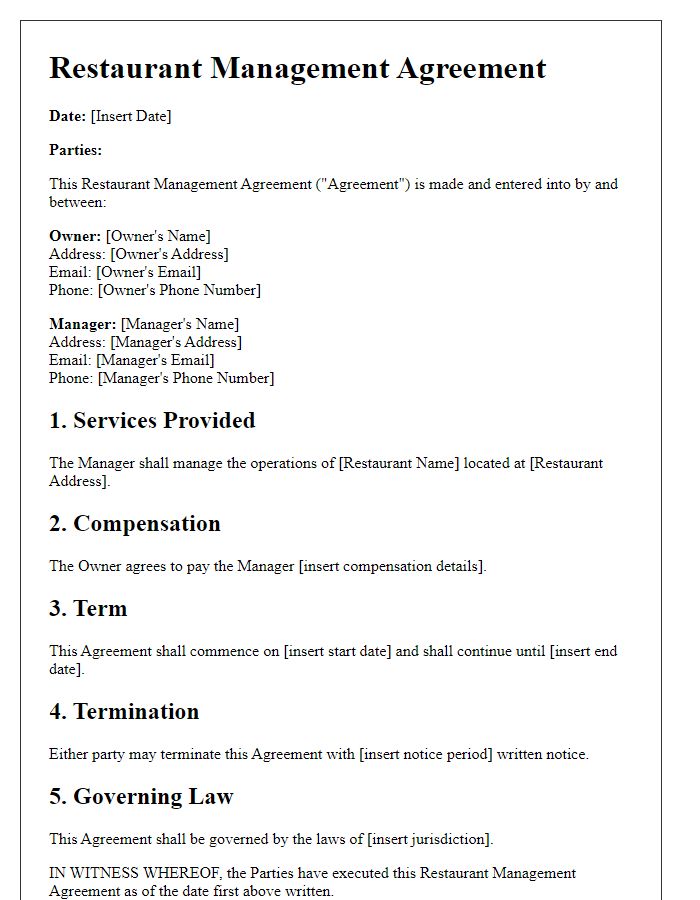
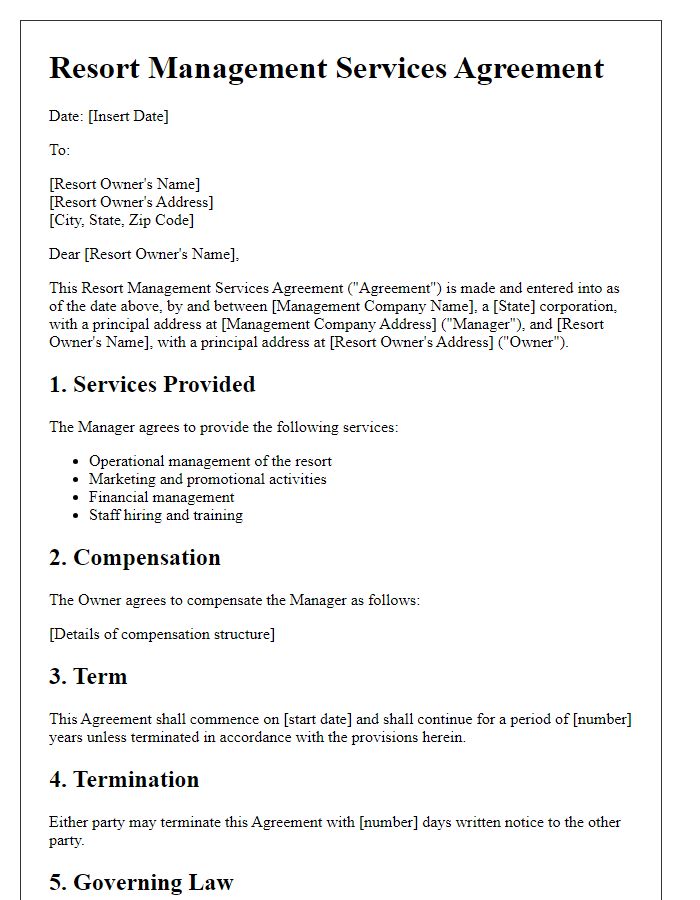
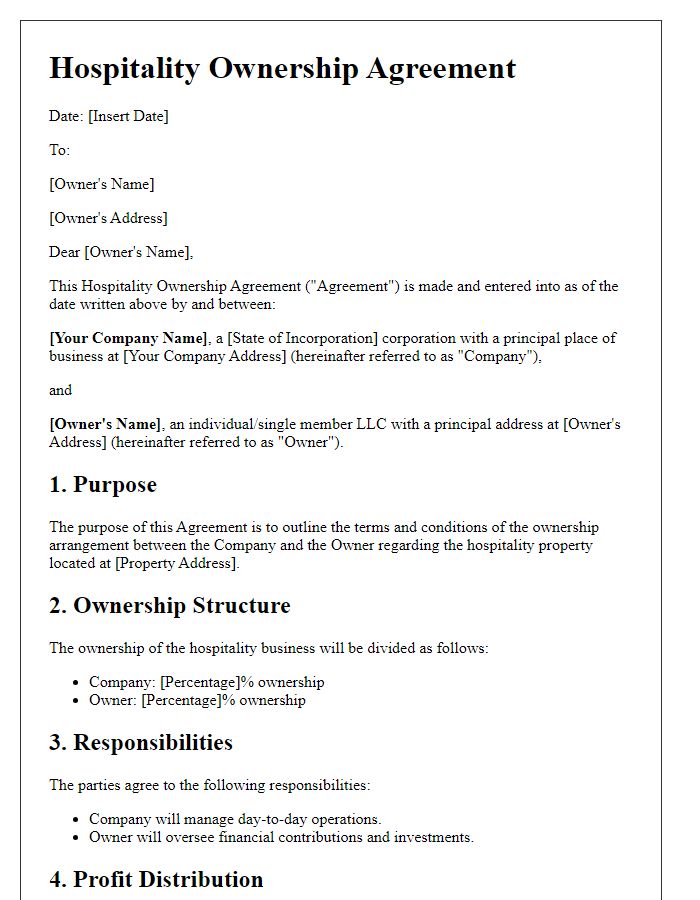
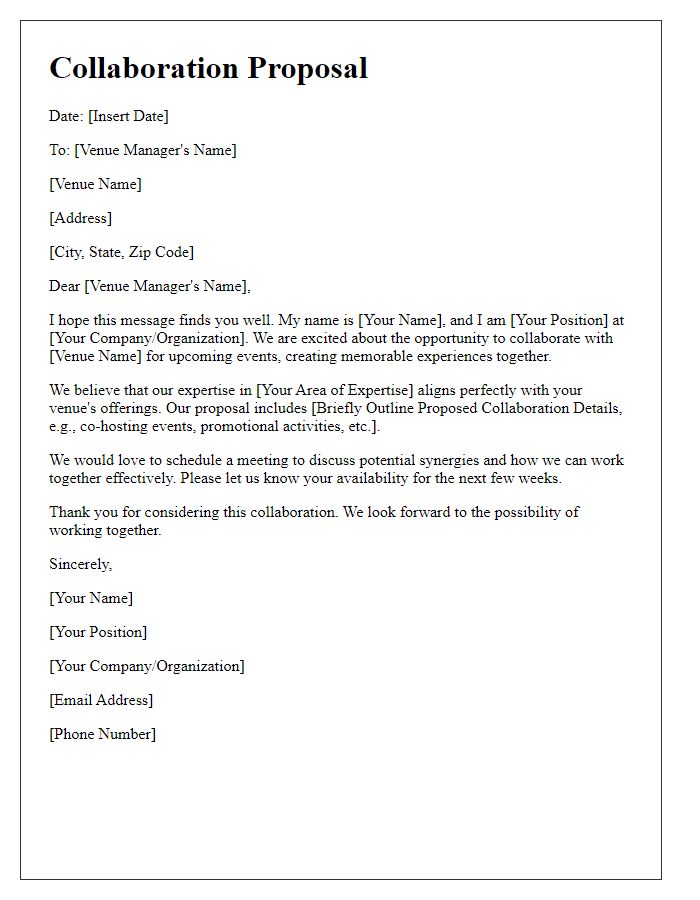
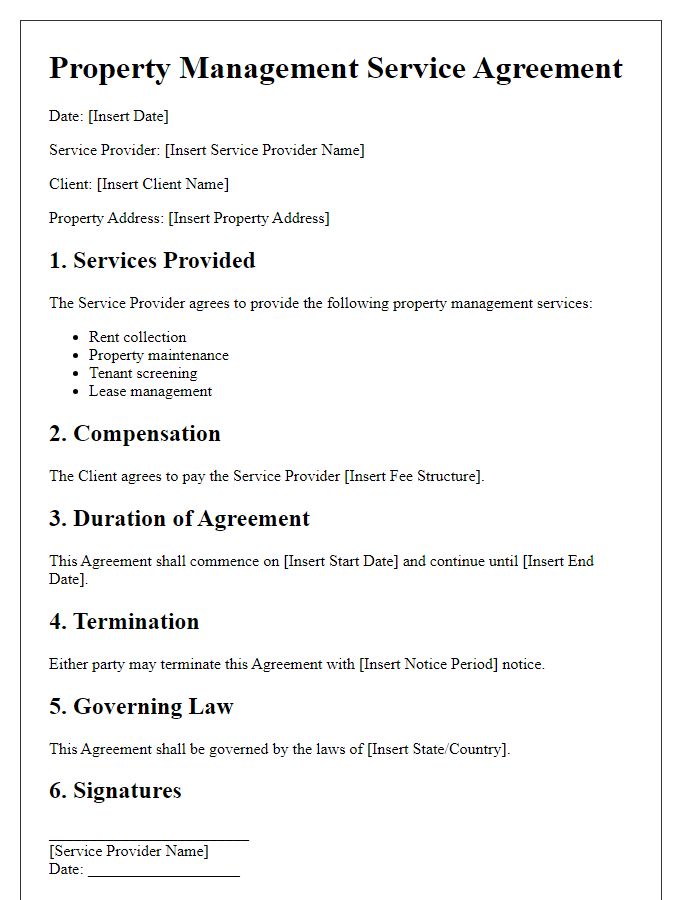
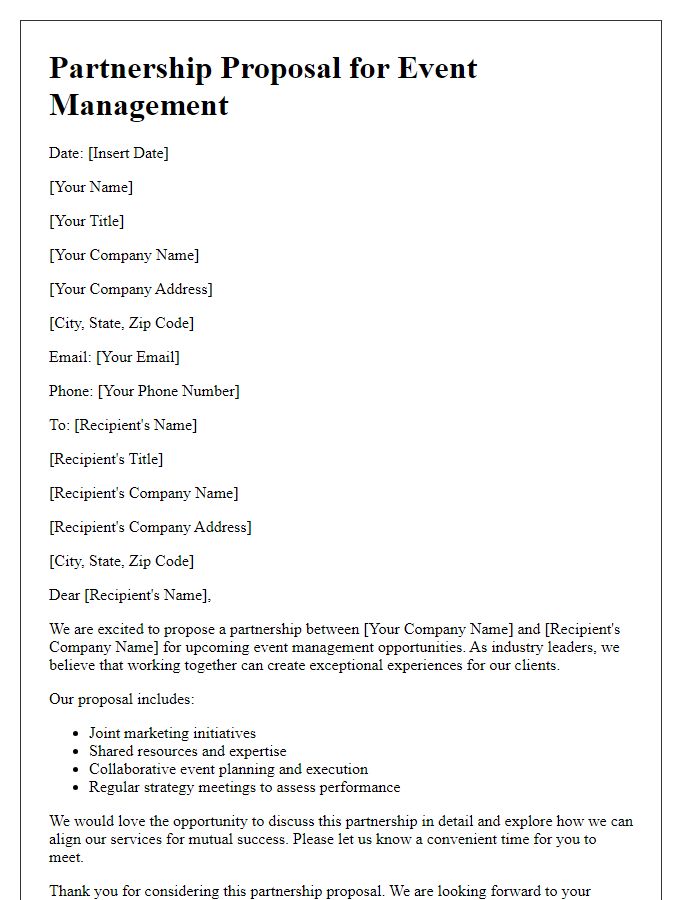
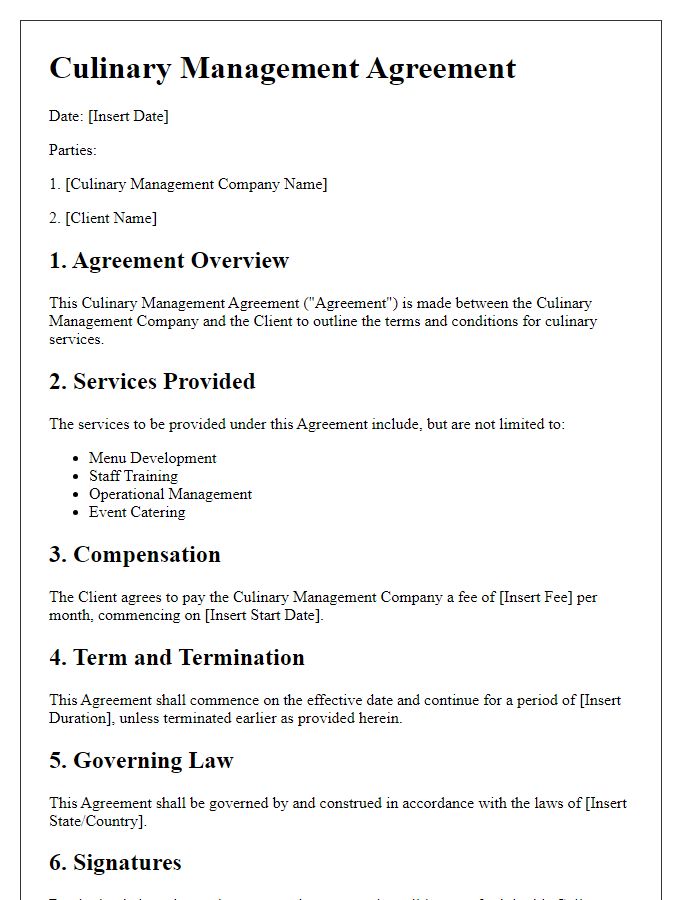
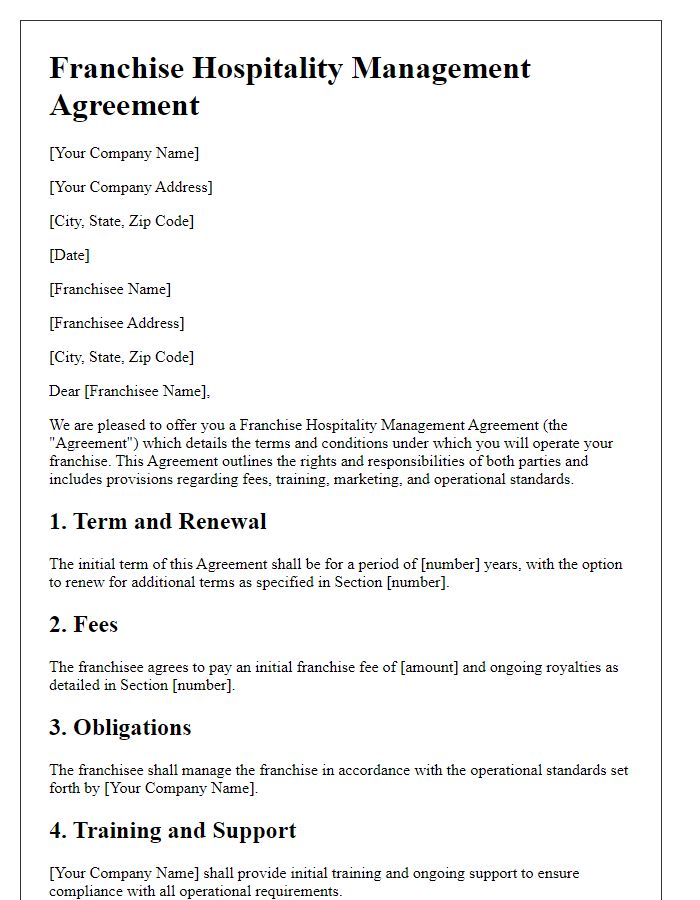


Comments